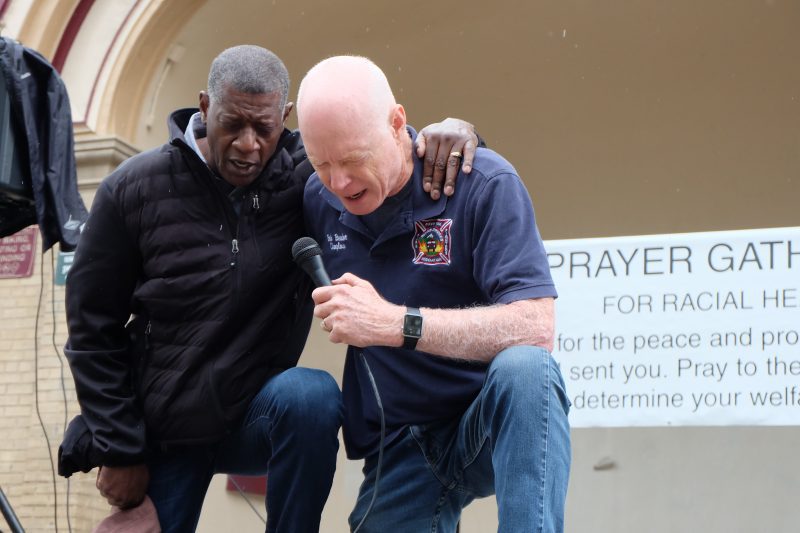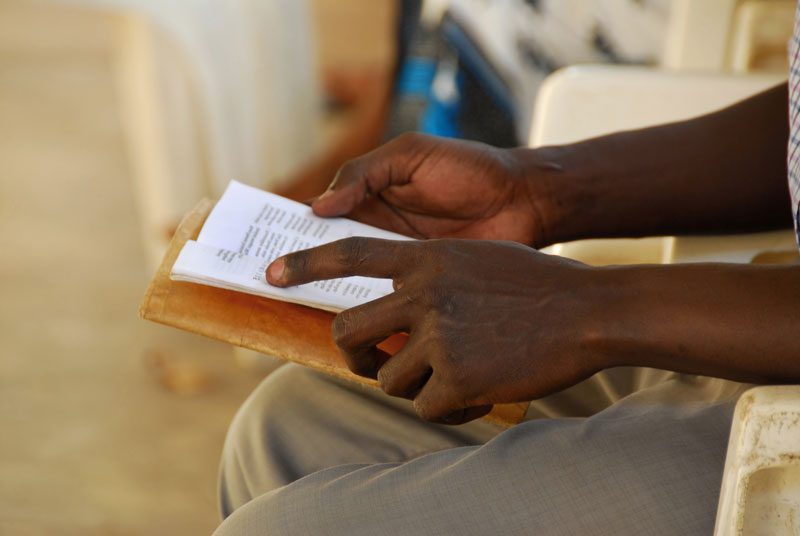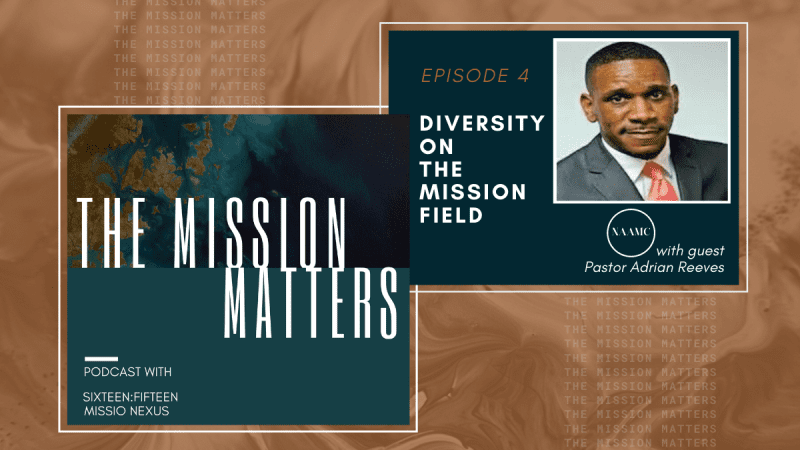National African American Missions Conference Report – Day 1


Mission leaders, the people they mobilize and teams on the field need both early and ongoing conversations around race, cultural differences and conflict in order to cultivate a healthy dynamic for all, especially for African American missionaries, said speakers on the first day of the online National African American Missions Conference.
“You’re going to be working on a team with people of different backgrounds,” said Will Brooks, an African American OMF International staff member, speaking from Thailand, where he and his Taiwanese wife have served for more than 20 years. “If you’re not having that conversation up front, and now you’re stuck on the field, you’re going to have a lot of heartache. And a lot of people have had a lot of heartache.”
The sold-out online conference, with at least 1,000 initial attendees, featured event organizers and overseas missionaries, many of whom are African Americans, who talked about the current challenges and opportunities surrounding race. And what’s at stake is not just potentially marginalized people of color but the Gospel itself and the glory of God, speakers said. The conference is so well-attended that organizers plan to stream it on Facebook (https://www.facebook.com/naamconference ) to provide more access. The conference will continue on Friday July 10 and Saturday, July 11.
“What we’re talking about is the very integrity of the Gospel that we’re proclaiming to the nations,” Brooks said. “The Gospel is defamed when we don’t include each other. We must do this as one.”
Brooks led a workshop, titled, “Realities and Challenges of Being a Person of Color in Ministry Organizations that are Predominantly Mono-ethnic,” in which attendees—of many races, roles and organizations—discussed the many different types of conversations that are key to organizations not only diversifying themselves but doing it in a way that truly includes people of color.
“The number one reason missionaries leave early is each other, it’s us, it’s conflict,” due to our sinful natures and our differences, and the fact that God takes people as they are and still involves them in His work for His glory, Brooks said. “This is work. This is bloody-knees, wounded-healer type of stuff.”
NAAMC Founder Bishop David Perrin told attendees he organized the first conference after noticing a lack of African Americans involved on the overseas mission field.
“The reasons African Americans are targeted is because they’re missing on the mission field,” Perrin said, due to many factors including the most common fund-raising support model which, in its current form, continually fails to keep African American missionaries well-supported for longevity.
He urged African Americans to focus not just on inner city work in the States, which is on many people’s hearts in response to growing racial justice movements around the recent killing of George Floyd. But either go overseas or fund African American missionaries who are going, he said.
“God knows there needs to be a spiritual, powerful influence of the spirit of God in the inner city,” he said. “But we serve a God who is able to do all. He’s able to take care of our home front as well as overseas.”
Though this is its eighth conference that draws attendees from around the world, this particular year has had its own challenges for NAAMC such as COVID-19, economic concerns and the need to move it entirely to online.
“We had never done it before and we needed people to believe in us,” Perrin said.
That need for these social-distancing changes, and the global focus on race prayerfully shaped into an invitation for organizers to invite both whites and people of color to “reimagine missions” in many other ways, too, Perrin said. Included in the reimagining is the fact many Americans have immigrant neighbors from places missionaries have been trying to reach for years.
“The question is, will you witness to them?” Perrin said.
Sharing online from East Africa, “Missionary Dav,” an African American missionary whose real name is kept secret due to the sensitive location where he serves, said the equipping of missionaries is about committed discipleship transformed by the love of God. It’s not just a search for an adventure or accolades as a missionary.
“I’m only in Africa, not to be a good Christian or get God’s attention, but it’s my response to loving him, my response to encountering his beauty,” he said. “I’m going to lay down my job, my youth. I’m going to pour myself out for the nations. It’s hard and it’s painful, but God meets me in it all the time.”
Also included in the reimagining of missions are the important conversations that need to happen now in mission organizations, said Brooks.
“Don’t wait until next month or next year,” he said. “Ask it now. Go back to the drawing room and say, ‘this is the conversation we need to have and how can we have it?’”
Those conversations should look at policies, practices and organizational cultures in majority white organizations that hurt minority members, perhaps unintentionally, but with painful consequences, nonetheless. And if leadership teams don’t currently include much diversity, those diverse voices still need to be included in the conversations, Brooks said.
“Don’t have the conversation exclusive of the voices that are being excluded already,” he said. “I’m not promising you it’s going to be easy. I’m not promising you it’s going to be about kum ba ya moments. It’s about kneeling together with those bloody knees.”
This article is submitted by Rebecca Hopkins of Paraclete Mission Group. Paraclete Mission Group is a Missio Nexus member. Member organizations can provide content to the Missio Nexus website. See how by clicking here.






Responses